All content on this site is intended for healthcare professionals only. By acknowledging this message and accessing the information on this website you are confirming that you are a Healthcare Professional. If you are a patient or carer, please visit the Lymphoma Coalition.
The lym Hub website uses a third-party service provided by Google that dynamically translates web content. Translations are machine generated, so may not be an exact or complete translation, and the lym Hub cannot guarantee the accuracy of translated content. The lym and its employees will not be liable for any direct, indirect, or consequential damages (even if foreseeable) resulting from use of the Google Translate feature. For further support with Google Translate, visit Google Translate Help.
The Lymphoma & CLL Hub is an independent medical education platform, sponsored by AbbVie, BeOne Medicines, Johnson & Johnson, Miltenyi Biomedicine, Nurix Therapeutics, Roche, Sobi and Thermo Fisher Scientific and supported through educational grants from Bristol Myers Squibb, Lilly and Pfizer. Funders are allowed no direct influence on our content. The levels of sponsorship listed are reflective of the amount of funding given. View funders.
Now you can support HCPs in making informed decisions for their patients
Your contribution helps us continuously deliver expertly curated content to HCPs worldwide. You will also have the opportunity to make a content suggestion for consideration and receive updates on the impact contributions are making to our content.
Find out more
Create an account and access these new features:
Bookmark content to read later
Select your specific areas of interest
View lymphoma & CLL content recommended for you
EHA-SWG 2017 | Rare Lymphomas: CAR T-cells in Non-Hodgkin Lymphoma
On March 12th, at the EHA-SWG Rare Lymphomas Scientific Meeting 2017 in Barcelona, Spain, Marie José Kersten chaired a scientific session on ‘Fighting Lymphoma with T-cells’. The first presentation of this session was by Catherine Bollard, from The George Washington University, School of Medicine and Health Sciences, Bethesda, USA, on the topic of ‘CD19 CAR T-cells for Lymphoma’. Below are the key highlights from this presentation:
- Over 15 studies open using CAR CD19-transduced T-cells in the US
- First generation CAR T-cells had low persistence in patients
- Second generation CARs developed which include an additional domain, either:
- CD28
- 41BBL
- OX40L
- Second generation CAR T-cell therapy shown to have increased proliferation and persistence vs. first generation within the same B-cell lymphoma patients
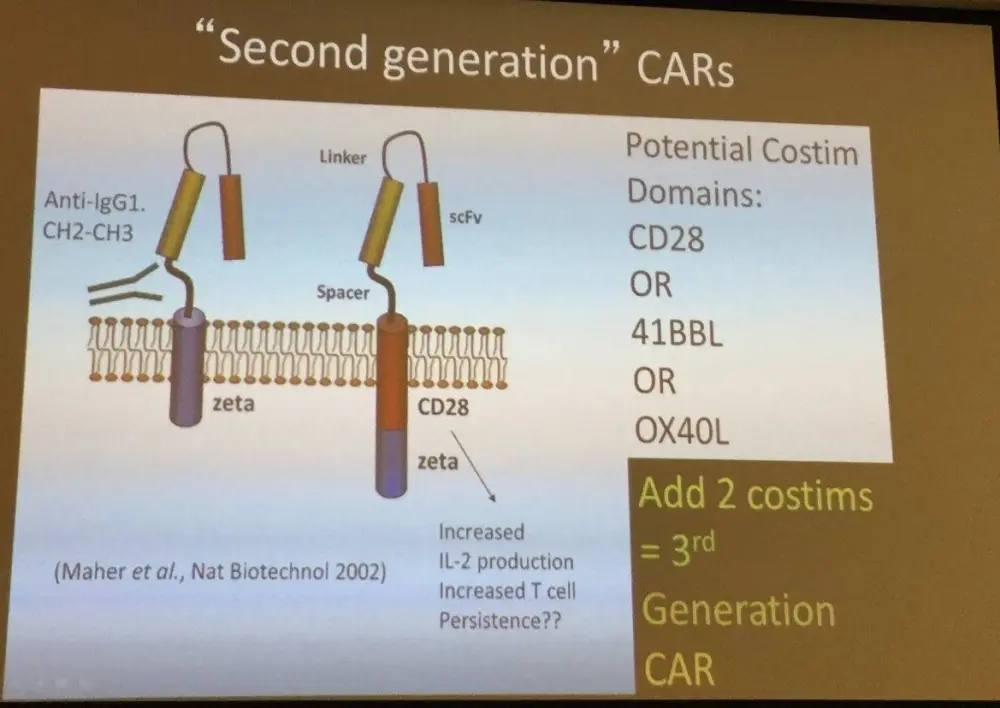
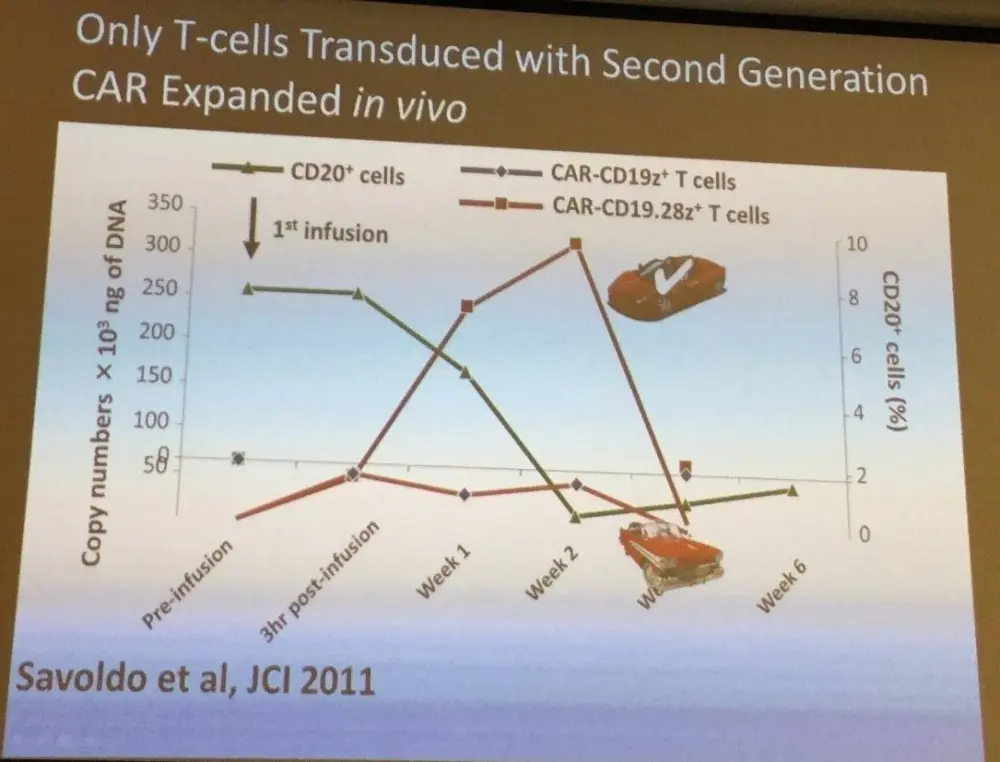
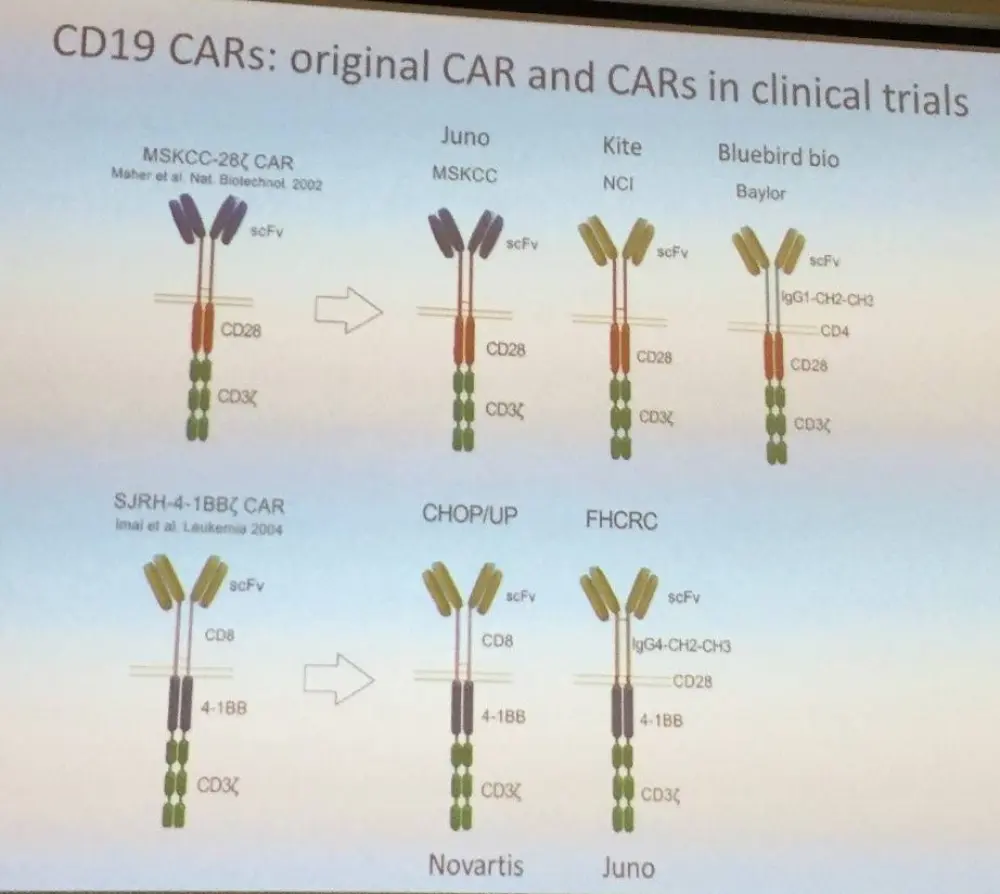
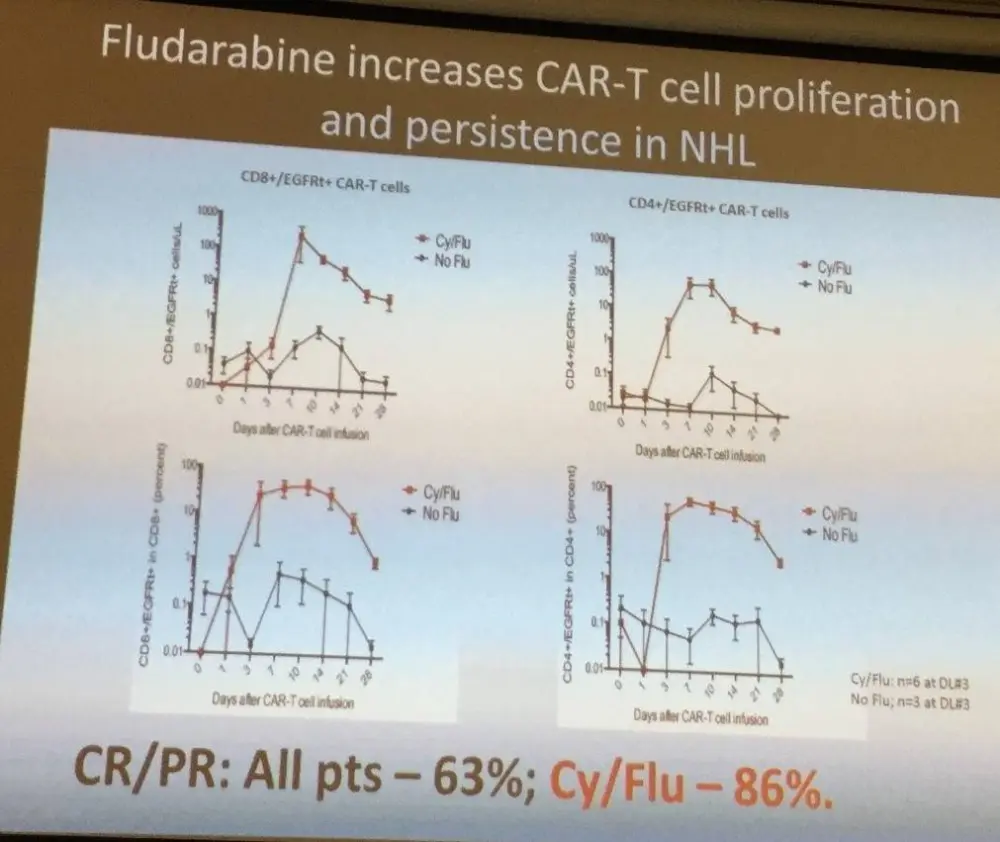
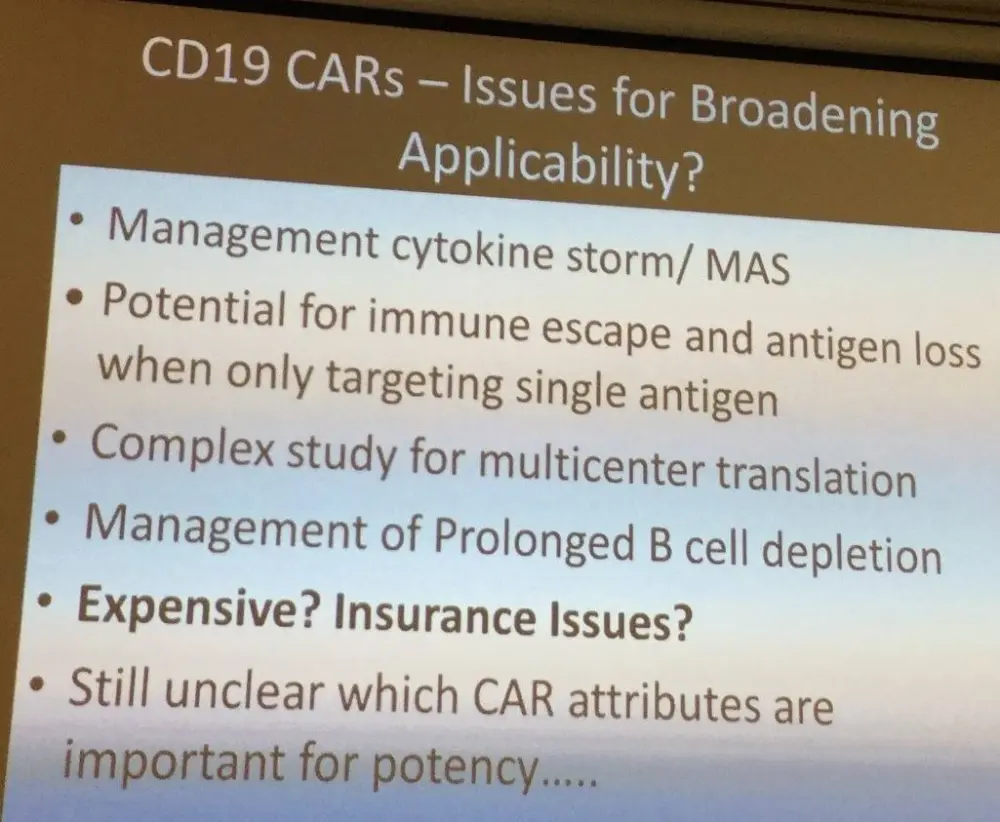
To summarize, Catherine Bollard presented data detailing the differences between first and second-generation CAR T-cell technology, outlined the perceived importance of CAR T-cell persistence, identified the main CAR T-cell constructs currently being used, and outlined potential issues in the applicability of this treatment. Studies are ongoing, and long-term follow-up data is eagerly being awaited.
References

